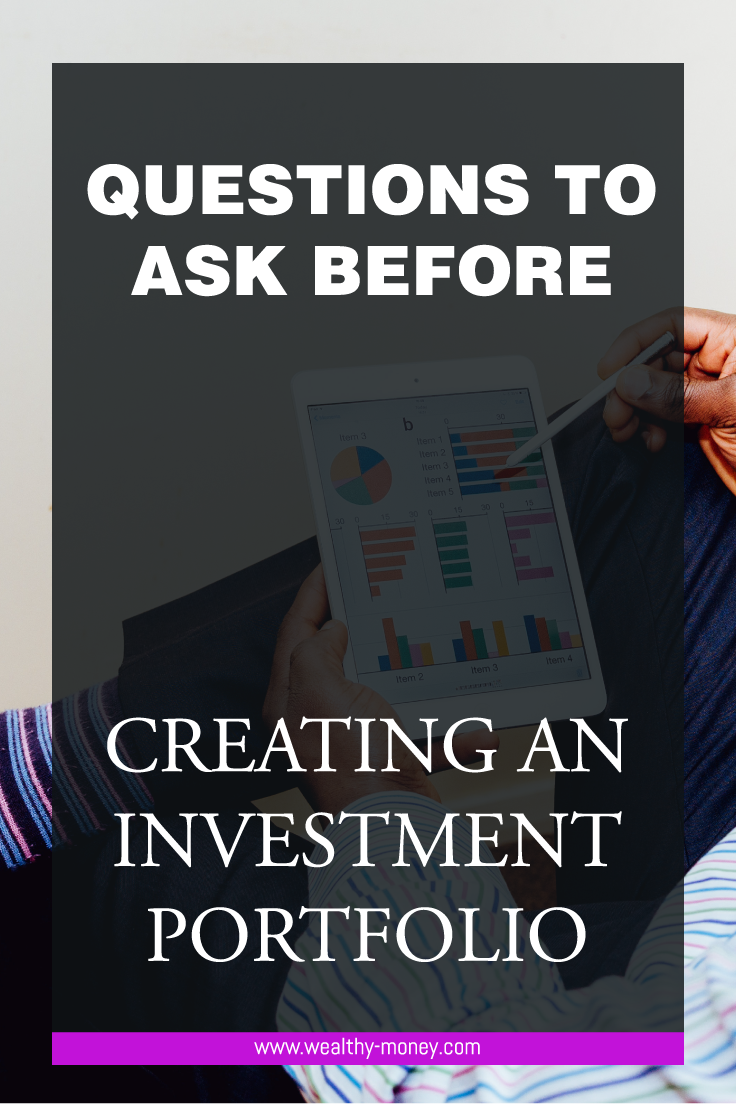3 Questions You Should Ask Yourself before Creating an Investment Portfolio
When I was growing up I'd see my parents, aunts and uncles all with salary slips, and on these slips were deductions for funeral policies, death cover, insurance and retirement.
It took me years to understand that these were actually investments and this was their portfolio.
The thing was their portfolios didn’t make them wealthy.
What was the deal with that?
It’s not that people don't invest; it's their approach to investing that holds them back.
They buy whatever they're told to buy by the many financial advisors that come to their companies or by their friends.
They join the pension scheme at work, buy the funeral policy their friend is selling, but what's the strategy behind all this?
How much will your portfolio be worth in 20 years?
Successful investors, aren't all high earners, they’re self-aware and emotionally intelligent because they know exactly why they're investing, how much risk they can take on and how much they want to have by x date.
And most importantly they have an investment strategy that takes all these things into account.
When it comes to investing - it’s all about what you do with what you have, not just how much you have to invest.
Before you start investing and creating a portfolio here are some questions to ask yourself:
1. Why do you want to invest?
What's your end game?
Are you investing for the short term or the long term?
Time is one the most crucial keys to investing - investing is a time game.
This may sound irrelevant but it'll inform the investment vehicle you choose.
If you only need your money in 20 years, you can invest in 15 or 20 year endowments and invest a lot less every month.
You may even want consider buy to hold rent strategies in real estate.
On the other hand if you will need lots of money in 3 years - then maybe endowments are not for you. Maybe your portfolio should be more liquid and more risky (easy to buy and sell)?
2. how much risk do you want take on?
Everyone has a different risk appetite and that risk appetite is tied to your level of patience as an investor.
The general rule of thumb is the more risk you take on, the higher your return on investment.
The risk you're willing to take on will determine what you invest in.
Shares are riskier than unit trusts.
Unit trusts and mutual funds are generally riskier than government bonds.
3. How much money do you want to have by a given date?
How much do you want to grow your money by in x number of years?
If you want your money to grow really fast in a short space of time then be prepared to take on more risk.
The risk you take on will also influence how your portfolio is structured.
The next question to ask yourself is: what are you going to do with that investment when it comes due?
Are you going to reinvest the money or is that money going be used for something else?
Knowing how much money you want by a set date also helps you figure out how much you should invest every month, given the rate of return you'll earn.
4. What do you really want?
I ask this question in The Holistic Wealth Manifesto.
If you don't know what you want, it'll be impossible for you figure out the amount of money you need to finance your lifestyle. Th amount of money you need in 5, 10 or 20 years from now, will influence the way you structure your investment portfolio.
Let me know your thoughts in the comments section below.






